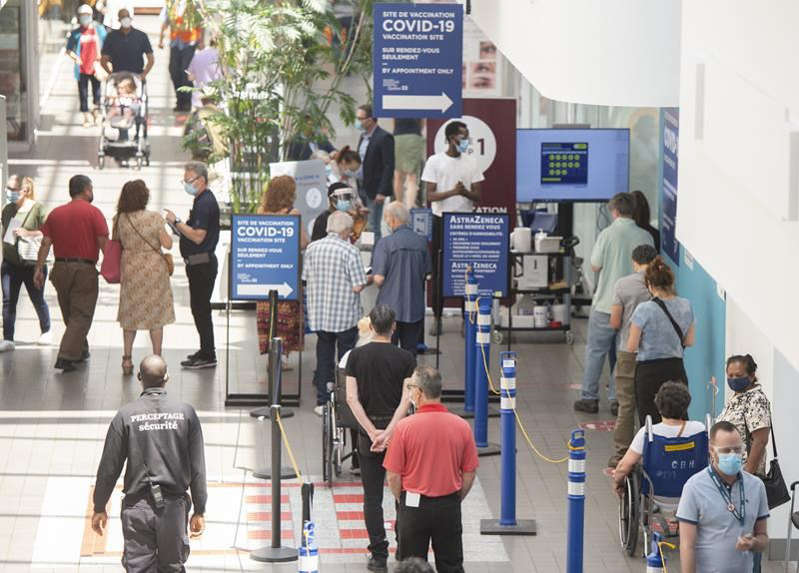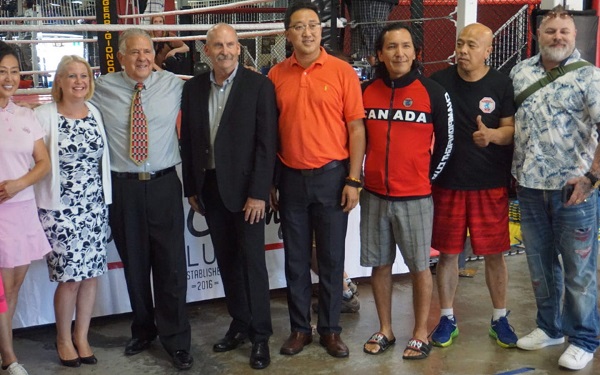Alberta
Your towing rights! AMA unveils measures to help fight predatory towing

From the Alberta Motor Association
Know Before the Tow: Towing Rights in Alberta
Predatory towing is a growing concern in major cities across the province. The Alberta Motor
Association (AMA), in partnership with the Calgary Police Service and Calgary Fire Department,
wants to ensure Albertans are not only aware of this emerging issue but also know how to stop
it.
Today, AMA launches Know Before the Tow—a new, provincewide awareness campaign that
empowers Albertans with the knowledge needed to stay confident and in control when faced with
a tow scam. The campaign features a list of five key towing rights that every Alberta driver should
know:
1. You have the right to refuse unsolicited towing services.
2. You have the right to choose who tows your vehicle, and where, unless
otherwise directed by police.
3. You have the right to access your vehicle to retrieve personal items during a
storage facility’s business hours.
4. You have the right to ask if the towing company receives a kickback for taking
your vehicle to a particular storage facility or repair shop.
5. You have the right to a quote prior to service, and an itemized invoice prior to
making payment.
“Being in a collision or broken down at the roadside is stressful enough; the last thing any Albertan
needs is high pressure from an unscrupulous tower,” says Jeff Kasbrick, Vice-President,
Advocacy and Operations, AMA. “These towing rights are clear and remind every Albertan that
they’re in the driver’s seat when it comes to who they choose to tow their vehicle.”
Edmonton and Calgary in particular are seeing increasing reports of predatory towing. Unethical
operators will arrive at a collision or breakdown scene uninvited, create a false sense of urgency
to remove the vehicle, and ultimately leave drivers facing huge fees.
Starting today, Albertans can visit ama.ab.ca/KnowBeforeTheTow to download a digital copy of
their towing rights, helping them feel confident if faced with a tow scam. And soon, all AMA centres
will offer free print versions, which are small enough to tuck in a glovebox.
“Alberta’s towing industry is still highly reputable, with the vast majority of operators committed
to fair and professional service. In fact, AMA and our roadside assistance network is proud to
represent 80% of all private-passenger tows in the province, so our members can be confident
that we’ll always protect them—just as we have for nearly 100 years,” says Kasbrick.
“By knowing your rights and choosing trusted providers like AMA, you can avoid unnecessary
stress, costs, and uncertainty. Because the road to recovery after a collision shouldn’t have to
include fighting for your vehicle.”
Sergeant Brad Norman, Calgary Police Service Traffic Section, says law enforcement continues
to work diligently with first responders and community partners like AMA to put the brakes on
predatory towers, who “are showing up at collision sites and pressuring overwhelmed and
frightened victims into paying high towing rates.”
“Our priority is to ensure the safety of collision victims, the public, and first responders at
collision sites. Part of this effort is educating motorists about their rights so that they Know
Before the Tow that they can say no to unsolicited towing services and choose a reputable
tower of their choice instead,” says Norman. “No one deserves to be taken advantage of after
being involved in a collision.”
To learn more, and to view an expanded version of Alberta towing rights, visit
ama.ab.ca/KnowBeforeTheTow
Alberta
B.C. traveller arrested for drug exportation during Calgary layover
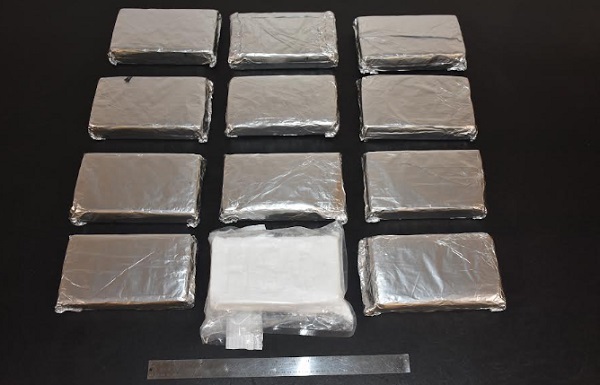
From the Alberta RCMP
B.C. traveller arrested for drug exportation during Calgary layover
Calgary – On Nov. 17, 2024, Canada Border Services Agency (CBSA) officers at the Calgary International Airport were conducting outbound exams when they intercepted luggage from a commercial flight destined for the United Kingdom. During the exam, officers found and seized 12 kg of pressed cocaine and a tracking device. The owner of the bag was subsequently arrested by CBSA prior to boarding a flight to Heathrow Airport.
The Integrated Border Enforcement Team in Alberta, a joint force operation between the RCMP Federal Policing Northwest Region, CBSA and Calgary Police Service, was notified and a criminal investigation was initiated into the traveller and the seized drugs.
Justin Harry Carl Beck, 29, a resident of Port Coquitlam, B.C., was arrested and charged with:
- Exportation of a controlled substance contrary to section 6(1) of the Controlled Drugs and Substances Act;
- Possession of a controlled substance for the purpose of trafficking contrary to section 5(2) of the Controlled Drugs and Substances Act.
Beck is scheduled to appear at the Alberta Court of Justice in Calgary on May 6, 2025.
“This seizure is a testament to the exemplary work and investigative expertise shown by CBSA Border Services Officers at Calgary International Airport. Through our key partnerships with the RCMP and the Calgary Police Service, the CBSA works to disrupt those attempting to smuggle illegal drugs across our borders and hold them accountable.”
- Janalee Bell-Boychuk, Regional Director General, Prairie Region, Canada Border Services Agency
“The RCMP Federal Policing Northwest Region’s top priority has always been, and will continue to be, public safety. This investigation serves as an important reminder that this extends beyond any border. By working together, we prevented this individual from importing an illicit substance into a foreign country where it had the potential to cause significant harm to others, all for the sake of turning a profit.”
- Supt. Sean Boser, Officer in Charge of Federal Serious Organized Crime and Border Integrity – Alberta, RCMP Federal Policing Northwest Region
“This investigation underscores the importance of collaboration in drug trafficking investigations. Our partnerships with law enforcement agencies across the country, and internationally, are vital to addressing crimes that cross multiple borders. By intercepting these drugs before they could reach their destination, we have ensured a safer community, both locally and abroad.”
- Supt. Jeff Bell, Criminal Operations & Intelligence Division, Calgary Police Service
IBET’s mandate is to enhance border integrity and security along the shared border, between designated ports of entry, by identifying, investigating and interdicting persons, organizations and goods that are involved in criminal activities.
Alberta
Proposed $70 billion AI data centre in MD of Greenview could launch an incredible new chapter for western Canadian energy

In case you missed it the other day, the Municipal District of Greenview, in west-central Alberta, announced some rather huge plans: to develop the “world’s largest AI Data Centre industrial Park”. The potential total value of the project could exceed a staggering $70 billion. This might, just might, be the tip of a big iceberg, because it shows the first indications that word is spreading about what some people have known for a while: there is no better place for these power-hungry data behemoths than the cold, relatively unpopulated, natural-gas-rich region of western Canada.
The announcement has garnered significant attention, which was awesome to see. The terms “AI data centre” and “$70 billion” will do that, and for good reason. AI is sweeping the world and no business or institution wants to be left behind. Furthermore, everyone wants them yesterday, and the challenge is where to put them all. It’s not easy finding the right place to plop something onto the grid within a few months that consumes the electricity of a small city, that doesn’t cause very problematic disruptions. We are in a power-short world, and this new entrant doesn’t really care. Which spells nothing but opportunity for power-rich regions.
Despite the positivity of the news release, it is important to keep our feet on the ground. Not meaning to be a buzzkill, here, but we shouldn’t fool ourselves that this will be easy. At any rate, here’s a quick run through the challenges, before getting to the more optimistic view. And in the spirit of Kevin O’Leary, I’ll let ‘er rip.
Mr. O’Leary is of course the driving force behind the Greenview AI project, which means that out of the chute it is going to be a colourful ride. He has dubbed himself “Mr. Wonderful” in an odd burst of mirth; the title is I guess supposed to be ironic because he, in his own words, courts controversy. He does seem to go out of his way to be provocative, with a certain Howard Stern-type shock-jock vibe that is not always helpful.
At least a few very bright people I’ve spoken to raise their eyebrows when they hear that Mr. O’Leary is leading this charge (he has even dubbed the location “Wonder Valley”, presumably a play on his chosen nickname, which comes across a bit like a tinpot dictator putting up a huge statue of himself). His business chatter is often mostly a lot of shouting, a lot of feathers but not much chicken; he is an astute businessman but seems to take delight in boisterous battles or boasts that cause people to think otherwise. In a recent BNN interview this past summer, he mused that he would buy TikTok (“I will be the buyer, I think”), which is a bit of an astonishing claim, considering that later in the conversation he went on to talk about his investment in a cupcake-in-a-jar business, which sounds fun, but does not enhance his Renaissance-man-style, nor when talking about executing 70 billion dollar projects. His focus is, to put it mildly, rather wild-eyed.
He is not a stranger to data centers, but even then his low polar moment of inertia leads to some serious longitudinal instability (oops, too much F1 lately). At the 2022 “Montana on the Rise Economic Summit”, he spoke extensively of data centers, concluding that data centers would be built “right here in Montana” because of the clean power attributes, and abundance of space and water. He went on to say that he would only place data centers (he does invest in them) where he requires “policy that he can see at least 7 years ahead.” When he invests in data centers, per his speech, what matters are two parameters: “the source of energy and the stability of the policy and the tax regime.” Regarding energy sources, he talked about Montana’s zero-carbon power sources as being key to this Montana vision of his. His statement was clear: clean power was the key to Montana data center development, from hydro, wind, nuclear. He introduced four speakers that each spoke of the clean power that was pretty much a prerequisite.
But now here he is leading the charge into Canada, which is a great omen possibly, more on that in a second, but it does fly in the face of what he said two years ago. In fact, not just two years ago but even earlier this year he was lamenting that Canada was un-investable. Here is another batch of sound bites from Mr. O’Leary from March 2024, where he vigorously follows up on his requirement for 7 clear years of policy vision: Canada is “run by complete idiots…Canada should have at least five of them [data centers]. There are none of them going on right now because you can’t get energy permits…you wouldn’t waste your time trying to go through the regulatory process of getting a permit issued…No one is going to risk capital there. You cannot get anything done in Canada, not in mining, not in data centers, not in anything to do with the federal government…”
Furthermore, as he ascertains, the challenges will be considerable. He was not wrong in his assessment of Canada’s challenging investment climate, and anyone involved in building anything in Canada can spill yarns until the cows come home about the endless challenges.
You wouldn’t know this by looking at the Wonder Valley website. It is somewhat different than the norm for this type of thing, in Canada – some entities that I am in touch with are attempting to build such projects, but are doing it the hard way – doing as much legwork as possible before making a big public statement, because of the considerable uncertainty. Mr. O’Leary has chosen a different tack, including creating a minute-long AI video of a dreamy forest landscape with prancing deer and pristine buildings, to go with his wonderful name, and anyone with any project development experience up here is well aware of the challenges that are being visually swept under the rug. It makes one wonder just where the project is at in the planning timeline, because the peacock feathers need to be affixed to something substantial, or they’re all just for show. And that’s where this project has an aura of haziness, because anyone that builds anything knows the flash is the easy part.
OK, that was the bad news. And it’s no surprise, we all know he is flamboyantly combative and blustery. But that’s not the end of the story.
Now let’s look at the good. And it could be very good indeed.
Regardless of the antics chronicled above, the fact remains that Mr. O’Leary is a very successful businessman, wh0 does not run from a challenge. There are also numerous reasons why he might just make this all happen despite his historical comments on the topic.
First off, Mr. O’Leary, like everyone else, no doubt has a different view of data centers than from 2022. The whole world has exploded in AI demand in just the past 12 months. So we can easily forgive him for that change of heart, including his adaptation to welcome natural gas. Given the current demand for AI services over the next few years, there is no other way.
Then Mr. O’Leary spoke of Canada being un-investable because of Ottawa. He’s not crazy there, I would agree completely. But the good news is that perhaps the winds of change are blowing so hard that investors might be willing to start placing bets that the era of insane governance in Canada is nearing the end. That would be a very good sign, because this country will continue to sink as long as the current regime keeps flexing in ways that terrify any investor that isn’t building a battery plant or other albatross with the fed’s $.
The last part of the good news equation is that Mr. O’Leary is publicizing something that is exactly right. From the Greenview/O’Leary news release: “Given existing permits, proximity to stranded sources of natural gas, pipeline infrastructure, water and a fiber optic network within just a few kilometers of the Greenview Industrial Gateway, we will be in the ground and up and running sooner than any scale project of its kind… The GIG’s ideal cold-weather climate, a highly skilled labor force, Alberta’s pro-business policies and attractive tax regime make the GIG the perfect site for this project.” Mr. O’Leary has not forgotten the carbon-free angle, noting that geothermal energy is under development in the region as well. And finally, the project, according to the news release, promises a positive relationship with First Nations, a cornerstone of any future large-scale industrial construction in any part of Canada that is not a major city.
Behind the regulatory woes, the tools required to make this project a success are mostly there. The energy sector has a formidable ability to get things done, with a strong, motivated workforce, world-class talent, and legendary enthusiasm. The dynamism of the sector has drawn young people from across the country for decades.
Thanks to the enthusiasm of producers, we are also blessed with many decades of reasonably priced natural gas; we are capable of producing far more than can find a home via pipe. If ever there was a poster child for “in-basin demand”, this is it. The infrastructure is there, the gas is there, the construction talent is there, the fiber optic linkages are there…it’s quite a list of assets.
Those of us watching the energy industry from the inside have known since the topic went viral that inland western Canada possesses everything necessary to successfully host massive AI data center developments. The challenge has been the vast, thick wet blanket of regulatory strangulation and business animosity that has grown like a weed across the country.
If it takes a bombastic guy like Kevin O’Leary to punch through that mess and start the first wave of what could be a very large infusion of capital into Canada, then so be it and I welcome his project and even him with open arms. Furthermore, I’m sure nothing drives him forward like being told he will not accomplish something.
And to be very clear on the point: Mr. O’Leary is an entrepreneurial guy who gets things done. That is exactly what we need more of in Canada. Or rather, we have lots of those types, but they’ve been demoralized for a decade by the current political and regulatory environment that actively dislikes the hydrocarbon sector. Maybe exactly what we need is someone larger than life to kickstart things. We do know that the demand for AI data centers seems insatiable, and once the trail is blazed for new, co-located projects, perhaps many more will rapidly follow.
Mr. O’Leary, wishing you all the best and I will gladly print and eat this column at your convenience (I get to choose font) should you bring Wonder Valley to life. If you do, it could be the cornerstone for a whole new industry up here, and the benefits to Canada will be glorious.
It’s all happening as expected, more or less – an energy transition isn’t quite so simple. Find out what readers knew years ago in The End of Fossil Fuel Insanity – the energy story for those that don’t live it, and want to find out. And laugh. Available at Amazon.ca, Indigo.ca, or Amazon.com.
Read more insightful analysis from Terry Etam here, or email Terry here.
-
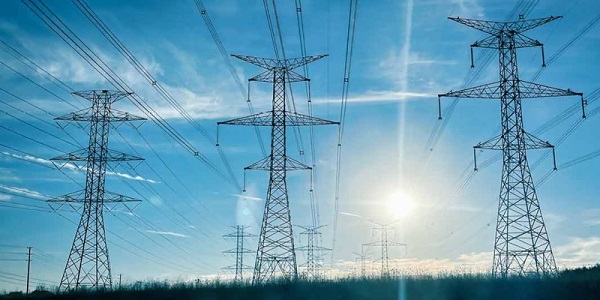
 Alberta2 days ago
Alberta2 days agoProvince “rewiring” Alberta’s electricity grid for growth
-

 MAiD2 days ago
MAiD2 days agoSaskatchewan seniors say they were offered euthanasia when faced with increased hospice costs
-
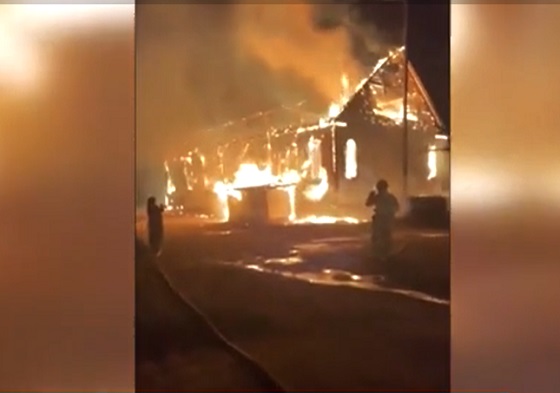
 National2 days ago
National2 days agoJD Vance sounds alarm over slew of Canadian church burnings: ‘Anti-Christian bigotry’
-

 Brownstone Institute2 days ago
Brownstone Institute2 days agoFreedumb, You Say?
-

 Business2 days ago
Business2 days agoArgentina’s First Budget Surplus in 123 Years
-

 Automotive2 days ago
Automotive2 days agoForeign Companies Think Twice About Pouring Billions Into US EVs As Trump Return Looms
-

 International2 days ago
International2 days agoRussiagate Remnants
-

 illegal immigration2 days ago
illegal immigration2 days agoTODD BENSMAN: What I discovered inside teeming Mexican migrant camps that proves Trump’s hardline policy is already working





